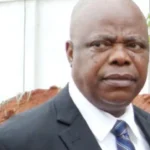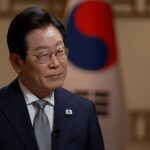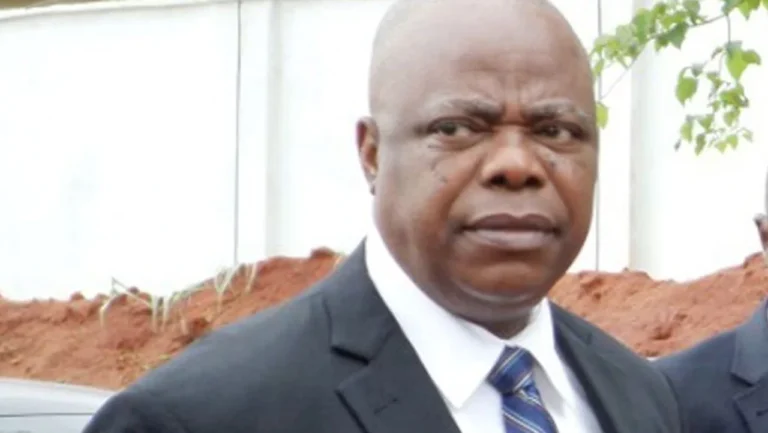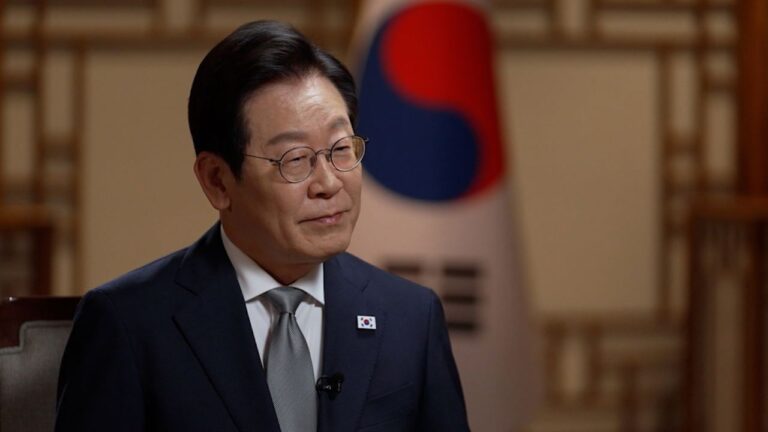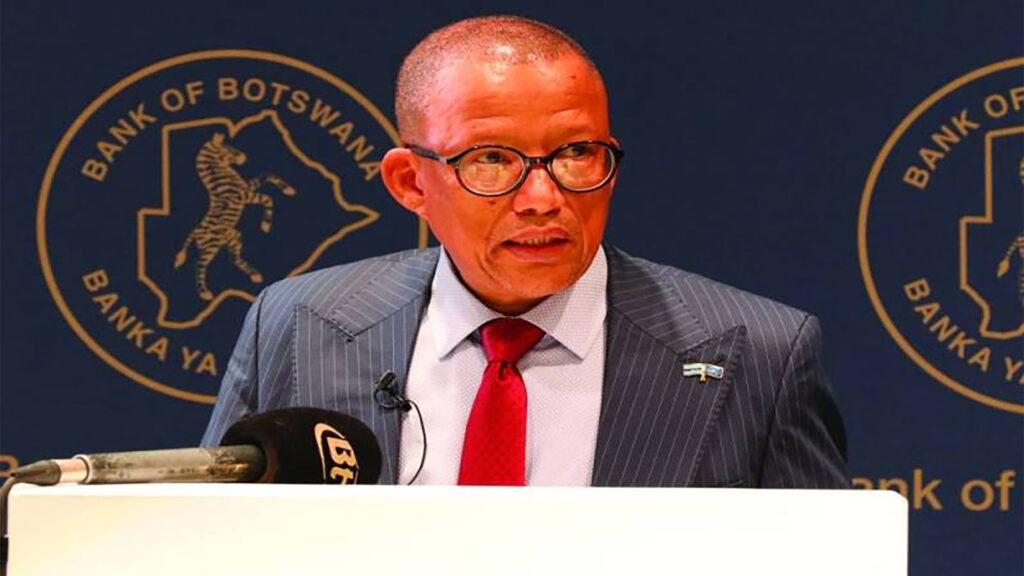
The Governor of the Bank of Botswana, Mr Cornelius Dekop, led the Bank’s delegation, comprising senior officials, to the 2025 Annual Meetings of the IMF and World Bank, held in Washington DC, United States of America, from 13 – 18, October 2025. In his capacity as the Governor for Botswana at the IMF and Chairperson of the Africa Group 1 Constituency (comprising 14 countries in Sub[1]Saharan Africa) for the 2024 – 2026 term, Governor Dekop participated in several high-level engagements during the Annual Meetings.
These included the Joint Annual Plenary of the IMF and the WBG; International Monetary and Financial Committee (IMFC); the African Caucus engagement with the IMF Managing Director, where Africa’s macroeconomic priorities, climate financing, and capacity development were discussed. The Governor chaired the Africa Group 1 constituency 2 meeting, which provides a platform for member countries to consolidate regional perspectives ahead of engagements with IMF Leadership.
In addition, the Governor held bilateral meetings with IMF Deputy Managing Director, Mr Bo Li, senior leadership of IMF Departments and other participating institutions to discuss issues of mutual interest, including the possibility of repurposing IMF policies to provide support, in an innovative way, to small and middle-income countries like Botswana during periods of economic recession. For specific issues related to the Bank and Botswana’s economic and policy developments, the Governor engaged closely with relevant departments of the IMF. Discussions focused on, cooperation and capacity building initiatives, as well as the provision of technical assistance in areas such as balance of payments, banking supervision and payment systems.
The Governor also held bilateral meetings with other international institutions, including commercial and investment banks, as well as Visa Inc, a leading global payments company, to discuss evolving global economic developments and digital payments landscape. The 2025 meetings were convened at a critical time for the global economy, marked by heightened uncertainty. This mostly emanated from evolving geopolitical dynamics and shifts in trade relations, while advances in technology, climate change agenda, varying demography changes and increased debt levels were also key drivers. In this regard, outlining the global policy agenda as promoted and implemented by their respective institutions, the IMF Managing Director, Ms Kristalina Georgieva and the President of the WBG,
Mr Ajay Banga underscored 3 the need for strengthened multilateral cooperation and policy coordination to safeguard global economic stability. Mr Banga underscored the WBG’s renewed mission to make job creation the cornerstone of development, stability, and dignity. He cautioned that the world is undergoing a major demographic shift: by 2050, about 85 percent of the global population will live in developing countries, and billions of young people, particularly across Africa, will be entering the labour market. He noted that while this presents an unprecedented opportunity for growth and innovation, it also poses a pressing challenge, as insufficient job creation could heighten risks of instability and migration. According to the October 2025 World Economic Outlook, released during the meetings, global output growth is forecast at 3.2 percent for 2025 and 3.1 percent for 2026, slightly lower than the 3.3 percent in 2024, with Sub[1]Saharan Africa expected to grow by 4.1 percent in 2025 and 4.4 percent in 2026.
For Botswana, output is forecast to contract by 0.9 percent in 2025 before expanding by 2.3 percent in 2026. In response to this outlook, discussions focused on the challenges facing the global economy and necessary policy responses. It was noted that, while the global economy remains resilient, heightened uncertainty could result in lower future growth. There was, therefore, emphasis on policy responses that foster confidence, build resilience and promote macroeconomic and financial stability, alongside continued cooperation to address global challenges such as geopolitical and trade tensions, as well as climate change. Discussions noted that, although global inflation has been declining due to weaker economic growth, it could rise in some markets as the tariff[1]related costs are gradually passed on to consumers.
Global inflation is 4 projected at 4.2 percent in 2025 and 3.7 percent in 2026, varying across regions, with advanced economies seeing upward pressures from changes in regulated prices and tariffs, while emerging and developing economies experience declining inflation due to weaker demand. In responding to inflation dynamics, participants underscored the importance of central bank transparency and clear communication to enhance the predictability of inflation outcomes, policy responses, transmission channels and associated risks. It was further emphasised that safeguarding macroeconomic and financial stability requires strong economic institutions (notably independent central banks), fiscal adjustments to ensure debt sustainability, efficient mobilisation of domestic resources, and pro-growth investments while preserving social cohesion. For central banks, the deliberations focused on the need to remain committed to their mandate of maintaining price stability.
The gathering reaffirmed the need for collaboration on digital and demographic challenges, climate change and global imbalances, while low-income and vulnerable countries are supported to address debt vulnerabilities and implement reforms that can attract private investment and promote job creation. Regarding the IMF governance structure, the Board of Governors reaffirmed their commitment to a strong and equitable representation, that also reflects shifts in the global economy while protecting the membership benefits for the poorest countries. Moreover, continued efforts were needed to enhance gender and regional diversity within the IMF staff and Board leadership positions. 5 On the margins of the Annual Meetings, Governor Dekop also participated in meetings of the Macroeconomic and Financial Management Institute of Eastern and Southern Africa (MEFMI) and other policy forums focused on regional economic integration and financial market development. As per the rotation schedule of MEFMI Board of Governors, Governor of the Bank of Botswana joins the Executive Committee from 2026. MEFMI is a regional capacity-building institution that supports member countries in strengthening macroeconomic management, financial sector development, and debt management. Overall, the Annual Meetings provided a valuable platform for insights on global economic and policy developments, strengthening partnerships with multilateral institutions and reinforce the Bank’s strategic focus and leadership in contributing to sound macroeconomic management and stability.
Post Views: 187


